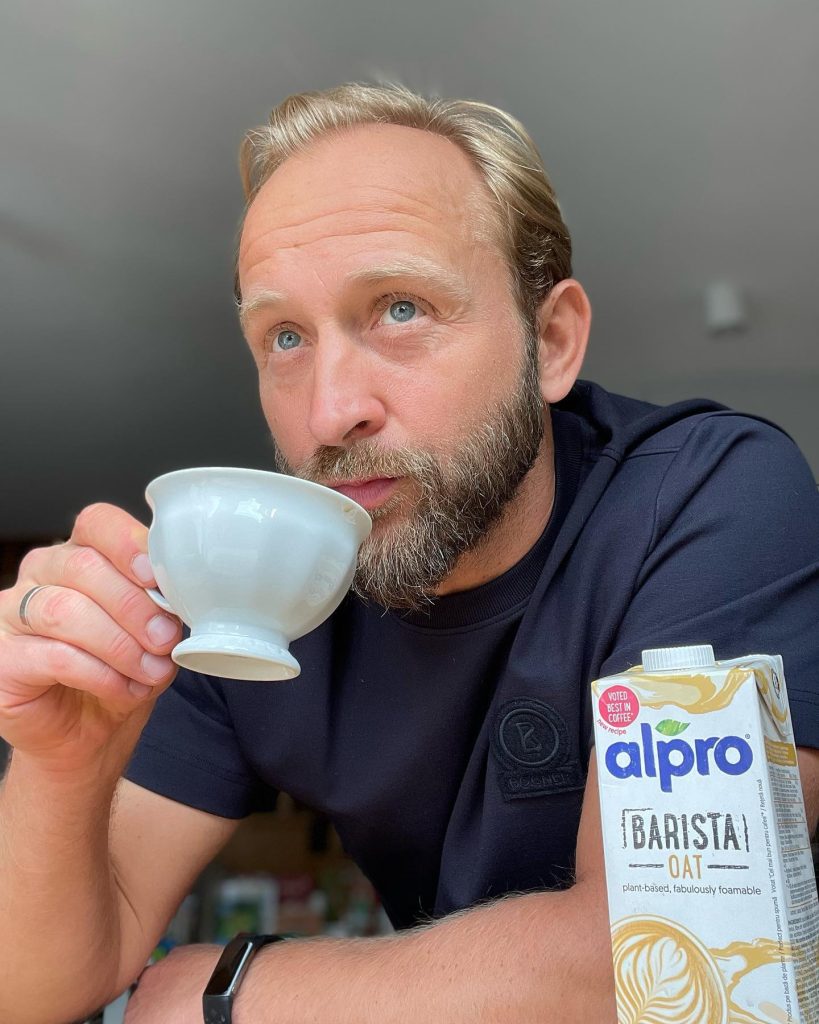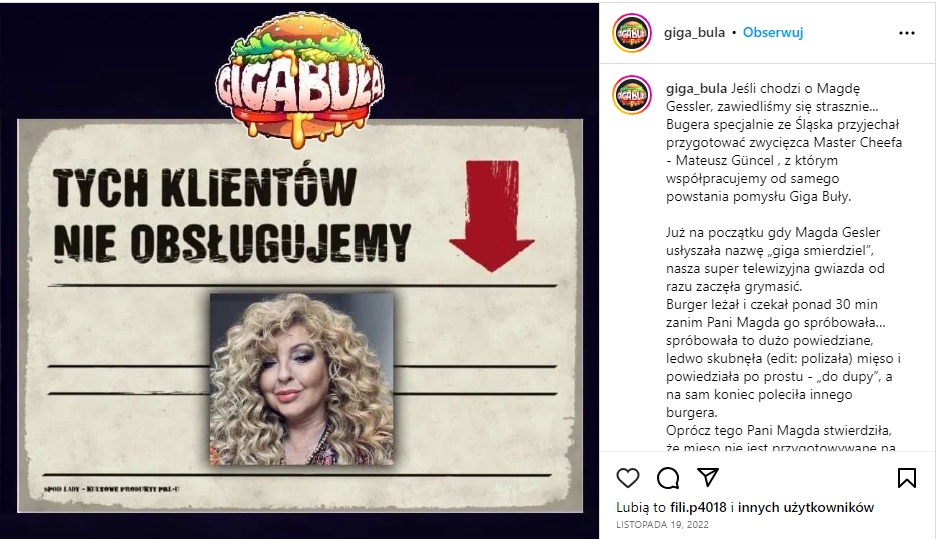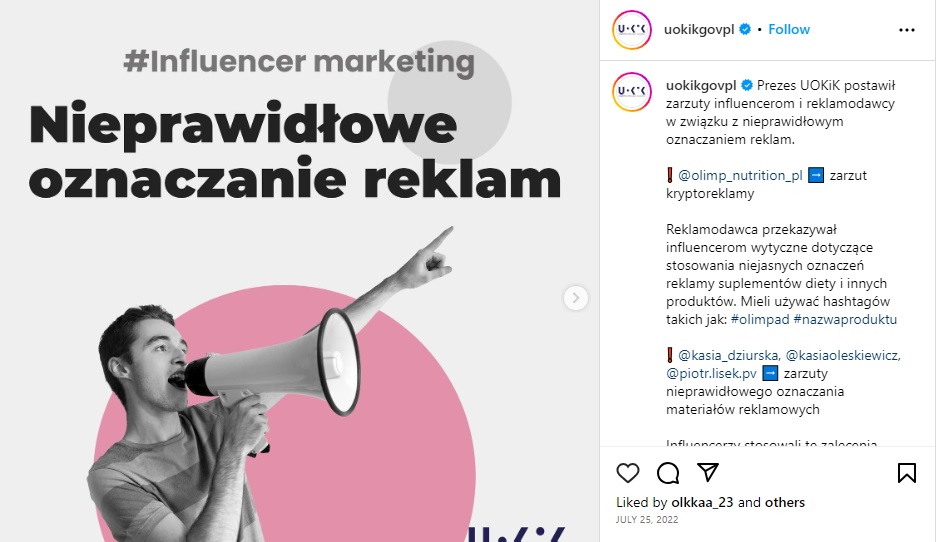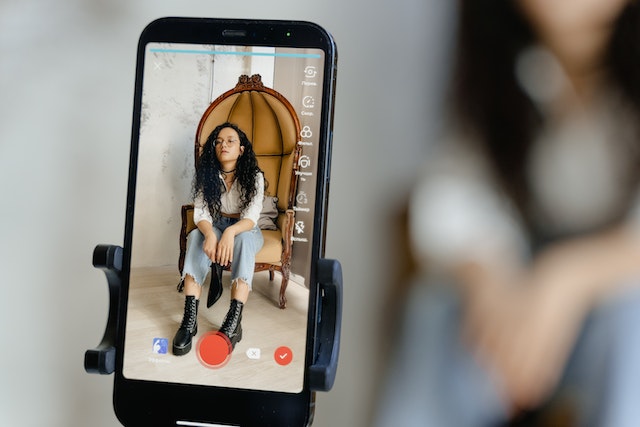A report published in 2022 by Brand24 states that already 93% of Polish marketers use influencer marketing in promotional strategies. As many as 8 in 10 Polish consumers make a purchase when a product is promoted by an influencer. The statistics are beyond doubt. Influencer marketing is alive and well in Poland. And the more influencer campaigns there are, the more chances for… slip-ups. In this article, you will learn how not to do influencer marketing in Poland – with real-life examples.
Table of contents
- Zalando and Kasia Babis
- Adidas and Anita Wlodarczyk
- Alpro and Borys Szyc
- Giga Bula and Magda Gessler
- Olimp Nutrition and influencers
Zalando and Kasia Babis
Although Zalando’s brand collaboration with online activist, YouTuber and cartoonist Kasia Babis took place at the end of 2021, it was 2022 that proved to be the proverbial nail in the influencer’s coffin. The YouTuber had never hidden her anti-capitalist views and criticised the contemporary clothing market. However, it only took one advert on Instagram for the influencer’s opinion to change 180 degrees.
A short video resulting from a collaboration with shopping platform Zalando, topped with the slogan ‘Joy belongs to us’, showed a huge dissonance between earlier declarations and the collaboration undertaken with the clothing giant. The collaboration caused a hiccup for both the influencer and the brand itself. She lost the trust of her audience and announced her disappearance from the Internet in 2022. The brand, in turn, was in the limelight for several months as an example of this ‘evil’ corporate giant.
How to avoid similar situations – advice from a marketing agency
A thorough vetting of the influencer in terms of not only their reach, but also their views (also in the past!) is an absolute must. It will be much better to invite a smaller influencer (but one who is connected to the industry and less controversial) than to expose the brand to an image crisis and being in the headlines in a negative sense.
Adidas and Anita Wlodarczyk
In June, the whole Internet was abuzz with the chilling news that a Polish athlete and three-time Olympic champion had been the victim of a… burglary. She described the whole situation on her Facebook page, detailing the course of events. The woman described that as soon as she saw the thief, she decided to give chase. She boasted that she had single-handedly captured the man and handed him over to the police. Everything would probably have had a positive ending if it hadn’t been for another post by Wlodarczyk, in which she …. advertised the shoes that “helped” her in her frantic run after the thief.
“I’ve never been this fast before”, she extolled the SolarBoost 4 shoe by Adidas, listing all the advantages of the model and presenting it in a photo (marked with hashtags announcing the collaboration, of course). Such an unusual way of advertising the brand was met with surprise and not necessarily positive feedback from the public. It is not clear who came up with the idea of using the event for advertising – whether Anita herself, her advisors or perhaps the Adidas brand PR team. One thing is certain, however. Instead of funny, it came out … not necessarily so.
How to avoid similar situations – advice from a marketing agency
Real time marketing is a great tool, but it does not always work or in every situation. Usually, planned long-term campaigns – thought out cold and approved by at least a few people in the brand’s marketing department – are more beneficial. Clearly, this is what was lacking in this case.
Alpro and Borys Szyc
This year, there was also no shortage of slip-ups that made audiences smile. The most notorious one was caused by Polish actor Borys Szyc, who published a sponsored post promoting the Alpro plant drink. And there would be nothing strange about it, if it were not for the fact that Szyc copied the content of the post…. together with all the instructions for cooperation received from the advertiser:
“Good morning, a reminder that today’s publication of alpro
Posted at
- instastories – this video of coffee making
- walla post – photo plus text.”

The case sparked a loud discussion among fans and marketing experts about the authenticity of the adverts created in collaboration with celebrities. Many viewers wondered whether the whole action was not a deliberate, controlled “slip-up” from the start, intended to cause a storm online. Although the actor quickly edited the post, an avalanche of comments led him to reinstate the previous version of the publication, in a way making fun of the incident himself.
How to avoid similar situations – advice from a marketing agency
It is difficult to assess whether the whole situation was pre-planned by the agency. If so, the intended effect was certainly achieved without any particular damage to the image of either the brand or the actor. If it was indeed a slip-up, it would be worthwhile to ensure better communication with influencers and a different method of sending guidelines rather than such an unprofessional ‘reminder’ of the publication.
Giga Bula and Magda Gessler
The example of Giga Bula (a burger restaurant owned and fronted by Polish influencer Isamu) and Magda Gessler shows that in influencer marketing, the lack of a plan and concrete arrangements is not the best idea. The Polish restaurateur, food critic and host of the show ‘Kitchen Revolutions’ was invited by the mall that houses the restaurant to visit the pub and try the brand’s flagship burger. The celebrity, known for her controversial statements, came, but did not spare the restaurant any unfavourable words (as can be seen in the video published online) She was not even supposed to try the meat, criticising the very name of the burger and complaining about the way the dish was prepared.
Restaurant Giga Buła addressed the restaurateur’s visit on social media, summarising the entire event, criticising her behaviour and accusing her of a lack of professionalism. Fans were divided into two camps – some identified with the restaurant’s owners; others suggested that by inviting the controversial celebrity, they knew what they were signing up for. The restaurateur did not comment on the matter, but the distaste remained. The brand ended the ‘conflict’ with a post in which it posted a photo of Gessler with the caption ‘We do not serve these customers’.

How to avoid similar situations – advice from a marketing agency
With any campaign involving celebrities or influencers, the most important thing is to establish the rules of cooperation – so that both parties know what to expect. If you give a public figure full freedom to express an opinion about your brand, you have to be aware that this opinion may not be favourable. It is therefore worth preparing for this eventuality in advance. Publicly “throwing dirt” and accusing the influencer of a lack of professionalism shows the brand in an equally unprofessional light.
Olimp Nutrition and influencers
From as early as 2021, the OCC informs that sponsored content on Instagram, TikTok or Facebook posted by influencers must absolutely be labelled in a way that does not raise doubts about the nature of the publication. The UOKiK makes it clear that labelling advertisements using abbreviations, in English forms such as #ad or using the hashtag #collaboration or #advertising, is insufficient.
Unfortunately, there are still cases in Polish social media where brands have failed to follow official guidelines. The most high-profile case from 2022 concerns sports nutrition and supplement manufacturer Olimp Nutrition. The brand and the influencers it worked with have received official charges in relation to the surreptitious advertising undertaken. The charges could end in a fine of up to 10% of turnover.

How to avoid similar situations – advice from a marketing agency
It’s simple – comply with the law and don’t look at the fact that perhaps another brand has had a similar transgression ‘baked in’. The Office of Competition and Consumer Protection is increasingly scrutinising the market and looking at incorrectly labelled adverts, so we can expect to see more similar cases in 2023 (unless brands quickly do their homework). If you are running a foreign brand and are just planning to enter the Polish market, you may not be able to do without working with experts from Poland – at least at the very beginning.
If you learn from others’ mistakes, it’s best to really learn from them. We hope that when planning campaigns with Polish influencers, you will avoid the mistakes discussed in this article. Do you want to avoid all the dangers and image mishaps? Tell us about your business goals and we will develop an influencer marketing campaign tailored to your needs and based on the latest trends.
